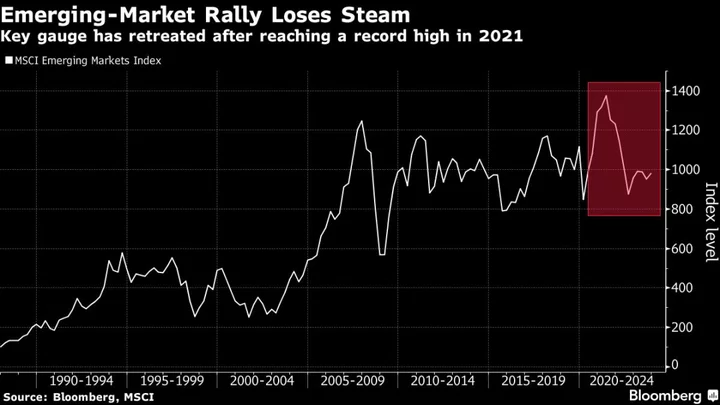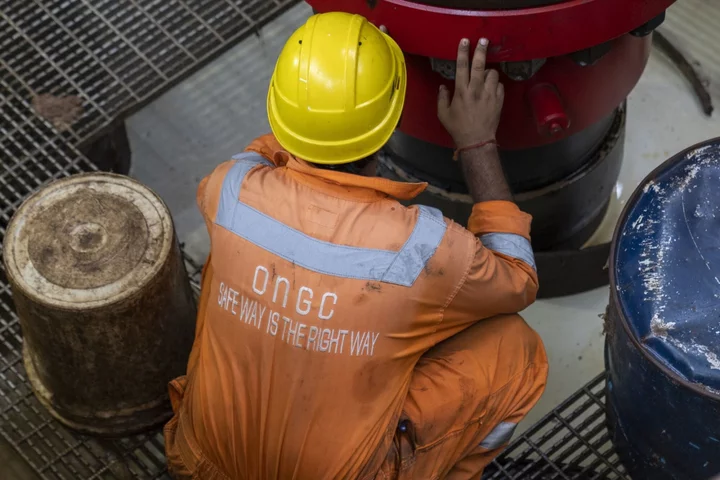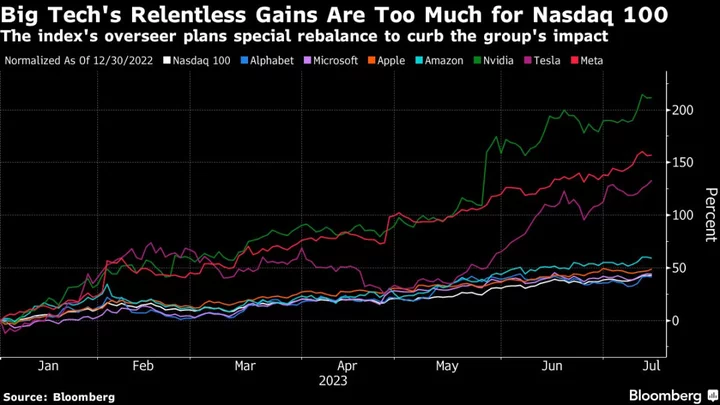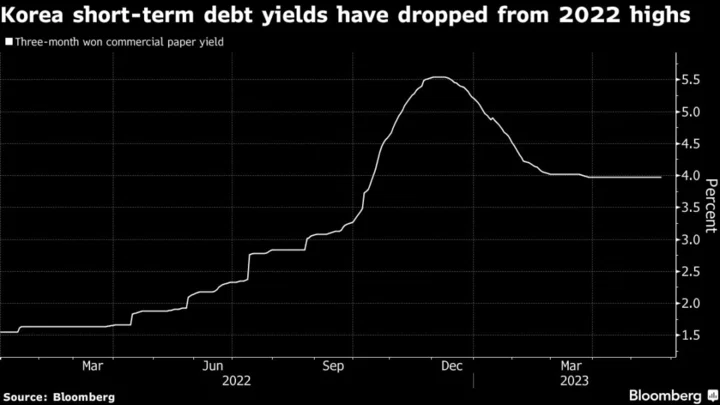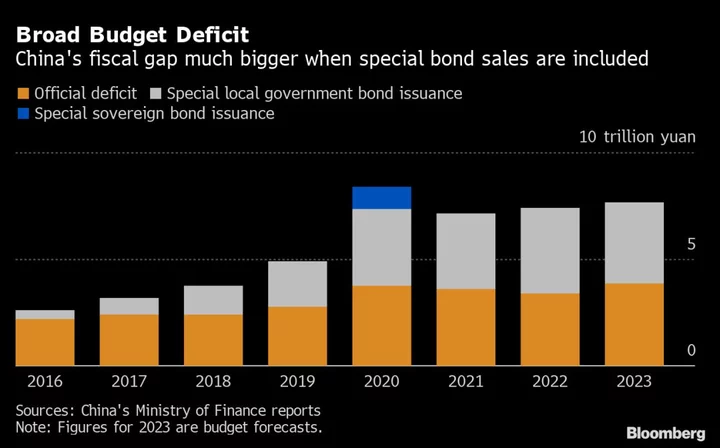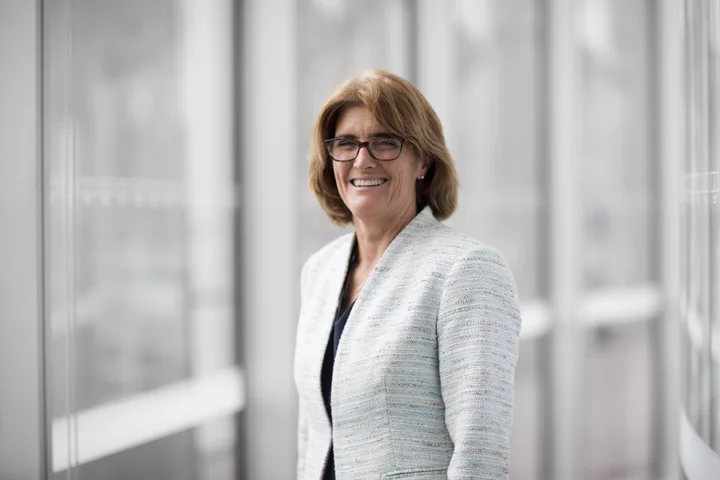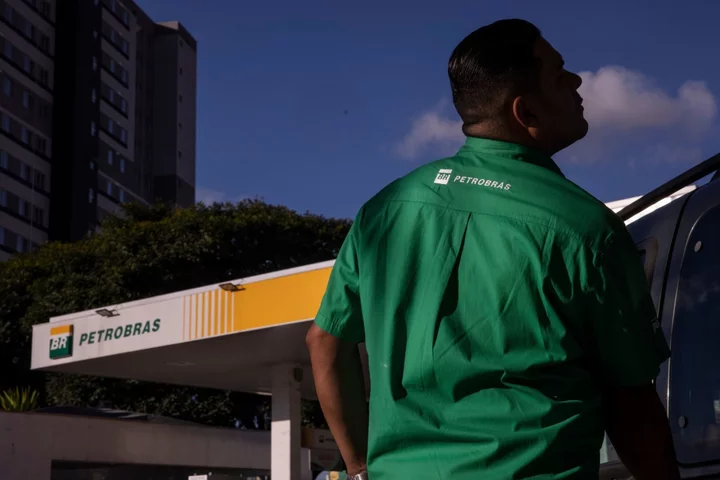Mark Mobius, whose name has been synonymous with investing in developing countries for a third of a century, isn’t planning to slow down even as he steps back from the firm that bears his name.
The 87-year-old money manager said he’s busier than ever as he looks to set up a new venture in Dubai.
The firm will be “involved in investment,” he said, declining to provide specifics because he said it’s still in the negotiating stage. “It’ll be something quite exciting in emerging markets,” Mobius said in a Zoom interview from Bengaluru, a technology hub in India, one of the countries he said he’s most bullish on for the future.
Dubai, where Mobius has lived for the past three years, has emerged as a favored destination for investment banks, asset managers and hedge fund traders, who are drawn by its ease of doing business, tax-free status and allure as a global travel hub. It’s also a more friendly time zone for portfolio managers who have global investments spanning North America to Asia.
Mobius, as ever, is trotting the globe in search of listed companies to bet on, as well as opportunities in private equity, he said. London-based Mobius Capital Partners LLP — which he co-founded in 2018 after three decades at Franklin Templeton Investments — is “all set and running well,” and it was time for him to move on, he said.
Starting in 1987 when investing in developing countries was still a relatively novel concept, Mobius helped to grow Franklin Templeton’s emerging-markets group to about $40 billion from $100 million.
Less than four months after leaving the firm, he set up his own asset-management company to invest in emerging and frontier markets. Shares in London-based Mobius Investment Trust, managed by Mobius Capital Partners, have risen about 30% since inception in 2018. That compares with a 55% gain on the US benchmark S&P 500 index, or a 6% loss for the MSCI emerging-market benchmark.
Mideast Bull
Mobius said the biggest risk on his mind, for now, is war, with the conflict in Ukraine and concerns that the fighting between Hamas and Israel could escalate into a regional conflict clouding the global economic outlook.
Despite that, he’s bullish on the Middle East, and has already been buying and selling properties in Dubai, where he expects prices to increase 15% annually over the next few years. He’s holding on to two luxury apartments facing the Burj Khalifa — the world’s tallest building — and says he’s also thinking of investing in financial services firms in the emirate, as well as snatching up shares from family-owned businesses when they become available, as he expects they will.
The region is setting itself up for a future beyond oil and that’s most evident in Dubai, Mobius said.
“Other countries in the Middle East are following soon,” he said. “It’s definitely a big transformation.”
In geopolitics outside of the Middle East, the “big issue” is Taiwan, the self-ruling democracy over which China claims sovereignty and which it has not ruled out seizing by force, he said. But that hasn’t deterred him from naming Taiwan as one of his top picks because it offers “access to the Chinese market,” he said.
“The risk is worth taking because the chance of China wanting to have a military attack on Taiwan is not great — simply because they need the resources that Taiwan has,” Mobius said. But “you must remember that accidents happen, so you have to be ready for them.”
‘Big Disappointment’
The “big disappointment” for him over the years has been witnessing the common “mistake” of rigidly following benchmark gauges, Mobius said. Benchmarking against key developing-nation equities indexes has meant money lost as Chinese stocks fell on economic struggles, property-sector travails and geopolitical tensions.
Chinese firms account for 27% of the widely followed MSCI Emerging Markets Index, compared with less than 4% for Russia before the country was removed following its invasion of Ukraine last year and international sanctions against it.
“The index is not the whole story,” Mobius said. “Do your individual stock and country picks and don’t follow the index because otherwise you’re gonna get caught up in situations like you already had where one country with such a heavy weighting will kill your portfolio.”
Mobius, who won a reputation for sniffing out stocks that are undervalued relative to their growth potential, said diversification is “really the only way you can escape any potential disaster.”
Too Much Debt
Investors will also need to be more selective amid signs that US interest rates may remain elevated, he said. Debt-laden countries will struggle to repay, leaving them “in an incredible crisis for quite a while.” China’s debt load continues to weigh on growth, while Argentina and Nigeria are also vulnerable. In comparison, other Asian economies have “learned their lesson” and have been more cautious, he said.
“Now’s the time when you’re separating the men from the boys,” he said. “You’re going to have to look very carefully at each individual country to see which ones are in heavy debt and which ones are going to be in good shape.”
Mobius is famed for some prescient big calls: correctly predicting the start of a bull market that began in 2009, snapping up bargains during the Asian financial crisis after Thailand floated its currency in 1997, and buying Russian stocks when panic selling took hold there in 1998.
He was also one of the first institutional investors to identify Africa as a promising frontier market, setting up the Templeton Africa Fund in 2012. In 2021, he predicted a “50-year rally” in Indian stocks.
Born to German and Puerto Rican parents in Hempstead, New York, Mobius got his Ph.D. from the Massachusetts Institute of Technology. He said he plans to publish two books soon: one about what central banks are doing to develop their own digital currencies and the other a guide for building wealth.
“I’m going to be as busy as ever,” he said. “It may even be busier.”

